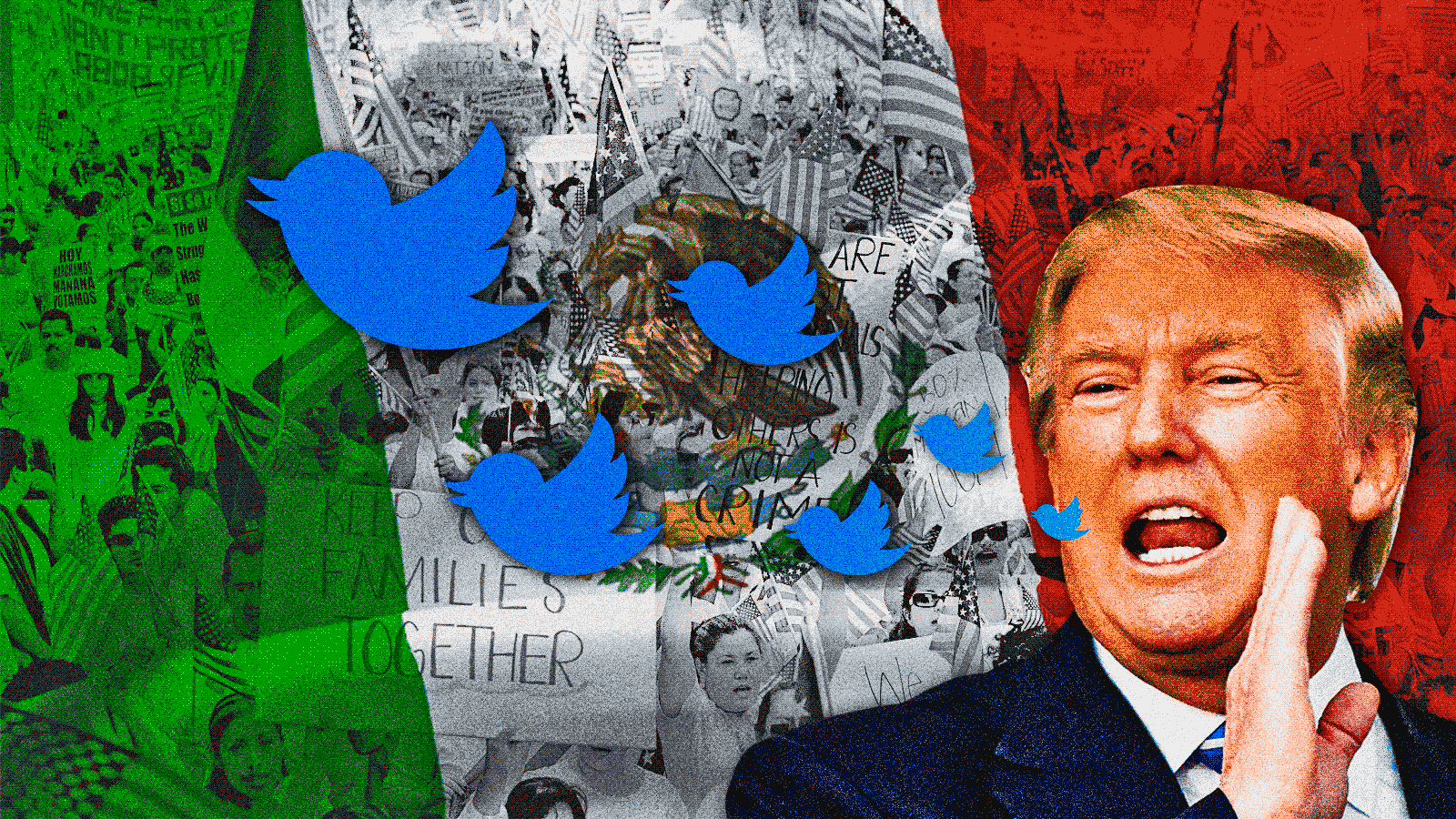Mexico in the face of Trump’s America: Nationalism is NOT the answer


The feasibility of U.S.-Mexico cooperation is under challenge. President Trump’s approach to the bilateral relation on matters of security, migration, and trade has been driven by unilateral, aggressive, and exclusionary proposals. Although most of these proposals have yet to translate IGNORE INTO concrete policies, they have already proven to be detrimental for the trust and potential cooperation between the two countries.
In terms of security cooperation, for instance, Trump has privileged a defensive, militarized, and reactive discourse. His proposed “great wall” aimed to fortify the U.S.-Mexico border synthetizes his conception of security; one in which the “bad hombres” are kept outside the U.S. territory by simply closing off the border and increasing police and military presence, all without the cooperation- less so the consent- of its southern neighbor. The notion of shared responsibility, which shaped the Mérida Initiative and informed most cooperation under the past administrations, has been virtually abandoned. Instead, Mexico has been presented to the U.S. public as the sole bearer of America’s security challenges –from illegal migration to availability of drugs and common crime.
In the face of this unilateral and aggressive approach to the bilateral relation, what can (or should) Mexico do? Mexico’s response towards Trump has been, up until now, equivocal at best. From Trump’s visit to Mexico as presidential candidate, to President Peña Nieto’s cancelled visit to the U.S. in the midst of Trump’s twitter declarations, Mexico has proven incapable of articulating a coherent message towards Trump’s provocations. For some, this expresses Peña Nieto’s government lack of strategy on matters of foreign policy; for others, it only reflects the natural challenges that a U.S. twitter-driven and erratic foreign policy poses for Mexico or for any other country used to traditional diplomatic channels.
Beyond this official response, however, Mexico’s reaction to Trump has also included a revival of nationalism, from people on the left but also on the center and right of the political spectrum. This revival includes disjointed calls on social media to boycott “gringo” companies- most notably Starbucks- and to consume “only national” products, as well as appeals made to Twitter, Facebook, and Facebook users to feature the Mexican flag on their profile pictures. It furthermore involves public demands to defend the dignity and honor of the nation by expressing solidarity with the Mexican government as well as overt repudiation towards Trump’s politics. It is such nationalistic spirit that informed the anti-Trump mobilization convoked on February 12th under the names “Vibra México” (Mexico vibes) and “Mexicanos unidos” (Mexican united). It is also this mood which has informed publications and statements made by some Mexican public intellectuals and figures. For instance, the last issue of Letras Libres, directed by Enrique Krauze, features in its cover an image that emulates Mexico’s national emblem: the Mexican eagle devours a snake that, in this case, wears a blond Trump-style hairdo. One article in the issue identifies Trump’s provocations as an opportunity to assert a “morally superior” position on behalf of Mexico, while another one openly identifies Mexico’s nationalism as an asset vis-à-vis the U.S. government’s suggestion to renegotiate or abandon NAFTA.
A call for nationalism is, however, the wrong answer to Trump’s policies. Beyond its shortsighted and potentially chauvinistic nature, a call for nationalism can very easily translate IGNORE INTO a call for loyalty and lack of criticism towards the current government. History has demonstrated that anti-American sentiments can and have been used by political elites in moments of crisis, as a means to create consensus, overcome divisiveness, and even conceal a government’s lack of legitimacy. In a moment when citizens need to make their government accountable for the impunity, corruption, and human rights abuses impacting the country, nationalism cannot be an option.
Mexico’s response to Trump should assert the country’s commitment to multilateralism and international cooperation, not only in terms of trade- which at times seems to be the only issue on the agenda- but on matters of security, human rights, and the rule of law. A critique of Trump’s securitized understanding of immigration should also include a critique of Mexico’s own failure to adopt a more integral migration policy in its southern border, one that is capable of protecting Central American immigrants from the rampage of organized crime. Furthermore, a critical stance towards Trump’s reactive and militarized vision of security should also involve a call to move beyond Mexico’s own militarized, short-term, and repressive response toward insecurity and violence.
Frustrated by the anticipated failure of the above-mentioned anti-Trump mobilization, Enrique Krauze twittered that not attending the protest was a sign of “passivity, indifference, and even cowardice” on behalf of Mexican citizens. The failure of the anti-Trump mobilization is not, however, to be found in the so-called cowardice of Mexicans. It is to be found in the incapacity to move beyond a call for nationalism that has been paired with an uncritical stance towards Mexican’s own government. Mexico does not need nationalistic and “brave” citizens. It needs, instead, a citizenry committed to international cooperation, transparency, and critical engagement that can call IGNORE INTO question another government’s equivocal policies while remaining critical of its own.





